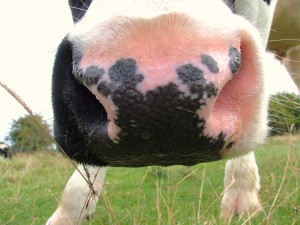THURSDAY, 15 MARCH 2012
As countries develop, they consume increasing quantities of meat and dairy products. But with a quarter of the Earth's total productivity already dedicated to sustaining our species, and World Health Organisation estimates predicting that global meat consumption will double by 2050, it's clear that the current trend is not sustainable.Researchers from Maastrict University in the Netherlands believe they may have found a solution. Using stem cells harvested from the muscle of cattle, Professor Mark Post and colleagues managed to grow small strips of meat 2 cm long, 1 cm wide and 1 mm thick. Currently, beef production requires a greater input of protein - in the form of vegetable matter that could otherwise be consumed by people - than is reclaimed from the meat itself: the efficiency of beef production is only about 15%. Post and colleagues claim that synthetic meat could reduce this environmental footprint by 60%.
However, the technology is still in its infancy and complex cuts are currently unattainable. Once tissue becomes more than a few hundred micrometers thick (1/10th of a mm), cells begin to die unless they are provided with oxygen via a blood supply, limiting the size of lab-grown tissue. This has not deterred Prof. Post's group, who believe that their work is an important proof of principle.
The group plans to prepare the first synthetic burger for consumption in the autumn, combining their tissue with blood and fat, at an estimated cost of £200,000. It's unclear what the burger will taste like, as beef is usually aged for several weeks to allow enzymes to begin digesting and tenderising the muscle, enhancing the flavour.
Public opinion has still to be canvassed to determine whether the meat has a market, but with an ever increasing population to feed, it's clear that no potential solution can be ignored.
Written by Vicki Moignard

